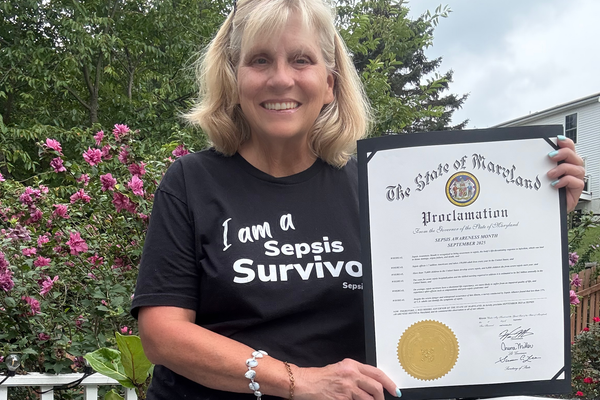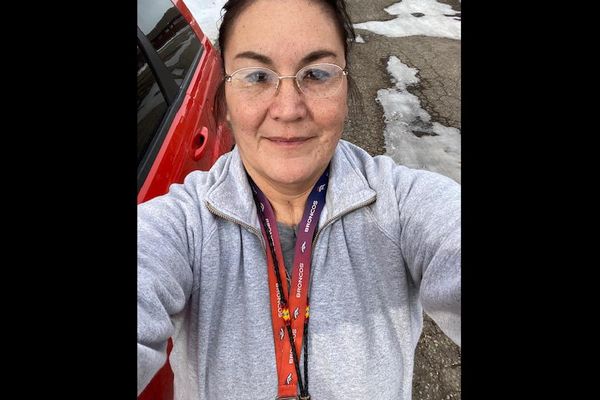By Debora Grandison
I never imagined my gestational diabetes diagnosis during my second pregnancy would be the beginning to my long, rough health journey. I had just been placed on insulin injections when I went into preterm labor in my second trimester.
After being rushed from work to the hospital, I was given a medication to stop the labor. The medication tripled my heart rate and I ended up in ICU! After the doctors monitored me and stabilized my heart rate, I was given two different possible diagnoses. I was first told that I had atrial fibrillation or AFib, meaning that the heart "quivers" rather than beats normally and then I was told that I may have mitral valve prolapse, meaning a valve doesn't close properly.
I remained in the hospital for several weeks, listed as a "high risk pregnancy" and was eventually released to go home and placed on complete bedrest. My only outside activities were weekly visits to the hospital to monitor the baby's progress. Three months later, we welcomed a healthy baby boy and I was taken off of insulin injections and continued being treated with meds for mitral valve prolapse.
I began to settle into a fairly normal routine of motherhood, until I thought that I had the flu and I made an appointment with my doctor to be checked out. I left the doctor's office with a recommendation to rest and drink plenty of fluids, but I received a call to return to the doctor's office later that afternoon.
Once I arrived, I was told that my blood glucose levels were 683 and most people with numbers that high weren't usually sitting up and communicating! I was stunned by the news, but still didn't realize the severity of my situation because I was more concerned with the needs of my family than my own.
I was immediately placed back on insulin injections and given a list of the long-term effects of diabetes (blindness, amputation and kidney disease). Heart disease was not included on that list. No one told me then that there was a correlation between diabetes and cardiovascular disease!
I spent the next few years juggling insulin injections, heart medications and the responsibilities of managing marriage and motherhood. (Not only were we raising our own two children, but we became foster parents to two brothers, so we now had four children under the age of three).
Several years later, our family moved to Missouri. Moving to a new state meant searching for new doctors to help manage my health needs. And after the move, I was experiencing a lot of unexplained symptoms and had a lot of unanswered questions. My symptoms included: dizziness, severe palpitations, tremors, migraines, pain/weakness in my left arm, elevated blood pressure and shortness of breath.
The search for answers led to a barrage of tests, which included holter monitors—a small, wearable device that keeps track of your heart rhythm—treadmill and chemical stress tests and several cardiac catheterizations and medication changes. One doctor placed me on a different medication every time I experienced a different symptom. Before long, I was taking 13 different medications, with no relief in sight.
Because I was desperate for a solution, I followed all of the recommendations, until I was handed a box of Prozac and was told that my palpitations were merely due to anxiety. I felt positive that there was something being missed and with the support and encouragement of my family, I kept pushing for answers.
My palpitations became so severe, that when I climbed the stairs in my home, it felt like someone was punching me in my chest. I made several visits to the ER, because I thought that I was having a heart attack. I didn't know who to turn to for answers OR who to trust with my care...I was afraid of what my future looked like and, in my mind, I was quietly preparing myself for not being around to raise my children.
In 2008, I found a doctor who led me to an electrophysiologist, who specializes in abnormal heart rhythms. He told me that my issue was an "electrical issue," not a "plumbing issue," and after 20 years of being treated with medication for mitral valve prolapse, I finally received a correct diagnosis of cardiomyopathy. In 2009, a pacemaker was installed and in 2013, I was correctly diagnosed with AFib, which increases the risk of having a stroke.
Today I'm living life to the fullest with a pacemaker and an insulin pump. I'm on a mission to educate, encourage and empower other women to:
- Know the symptoms and risks of cardiovascular disease and stroke
- Listen to their bodies and take action when something changes or doesn't feel right
- Know that there is a correlation between heart disease and diabetes
- Know their family history
- Be an advocate for themselves
- Place themselves higher up on the priority list
I know that I'm still here with a purpose and I'm truly joyful, in spite of what I've been through.
Debora is truly grateful to be a volunteer for two powerful resources that are making a positive impact on women's heart health. She joined The American Heart Association's Go Red for Women Movement in 2011 and served as a National Spokesperson in 2019. In 2013, she became a Champion for WomenHeart, The National Coalition for Women with Heart Disease. Educating, advocating, supporting and empowering women...changes lives and saves lives!








